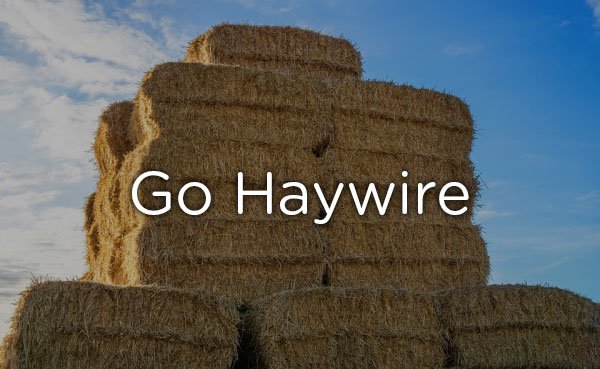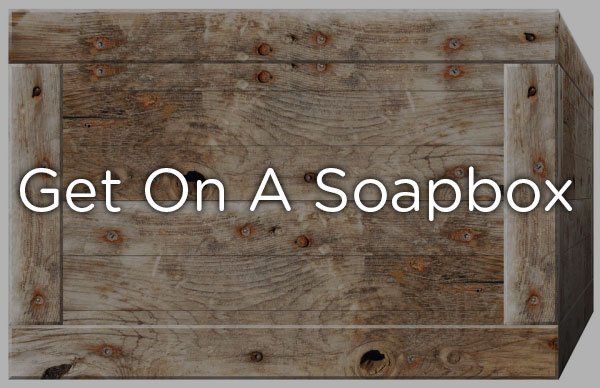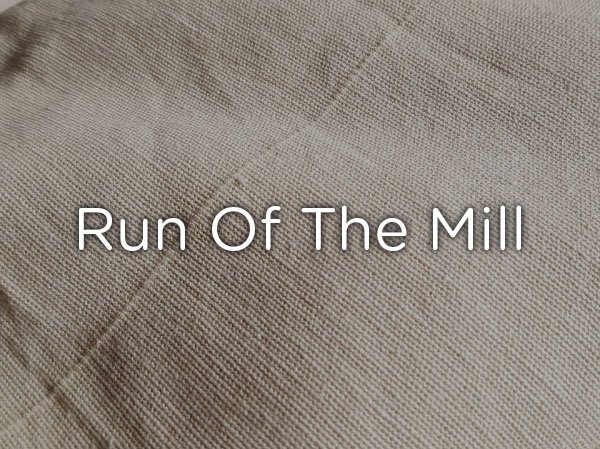16 Origins of Commonly Used Phrases No One Remembers Where They Started
Nathan Johnson
Published
11/15/2018
in
wow
Did you know where these phrases came from? I bet your grandpa doesn't even remember some of these.
- List View
- Player View
- Grid View
Advertisement
-
1.
 The Riot Act was a British law that from 1714, where after an official would read it out loud, any protestors or rioters that didn’t disperse would face punishment. To “Read the Riot Act” is to give someone a stern warning
The Riot Act was a British law that from 1714, where after an official would read it out loud, any protestors or rioters that didn’t disperse would face punishment. To “Read the Riot Act” is to give someone a stern warning -
2.
 Haywire was used to hold things together and act as a quick fix for something broken. Think of it like how we use duct tape today. It quickly became a term for anything that is malfunctioning or just not working correctly.
Haywire was used to hold things together and act as a quick fix for something broken. Think of it like how we use duct tape today. It quickly became a term for anything that is malfunctioning or just not working correctly. -
3.
 To get on a soapbox means to rant about a certain topic or to make a spontaneous speech. It comes from the 1800s where people would create makeshift platforms using crates that were used to ship soap.
To get on a soapbox means to rant about a certain topic or to make a spontaneous speech. It comes from the 1800s where people would create makeshift platforms using crates that were used to ship soap. -
4.
 During the Civil War, whatever hut/shed/tent/bush you were sleeping in was known as the shebang. Officers would write letters about “running the shebang”.
During the Civil War, whatever hut/shed/tent/bush you were sleeping in was known as the shebang. Officers would write letters about “running the shebang”. -
5.
 Tailors working on a big project would have to cut out all their pieces before starting to sew. Having your work cut out for you means you can see all your tasks ahead.
Tailors working on a big project would have to cut out all their pieces before starting to sew. Having your work cut out for you means you can see all your tasks ahead. -
6.
 With the telephone still fresh and new in the 1850s, people referred to communication that was passed from person to person to person as the “grapevine telegraph”. It was also expected to not always be 100% accurate.
With the telephone still fresh and new in the 1850s, people referred to communication that was passed from person to person to person as the “grapevine telegraph”. It was also expected to not always be 100% accurate. -
7.
 Meaning ordinary or average, run of the mill comes from Textile Mills, the plain fabric that had just been made was dull enough to warrant a phrase.
Meaning ordinary or average, run of the mill comes from Textile Mills, the plain fabric that had just been made was dull enough to warrant a phrase. -
8.
 This phrase comes from aviation, as the “flight envelope” is the limits of performance for a flight object. By pushing the envelope, you are testing just how far something can go.
This phrase comes from aviation, as the “flight envelope” is the limits of performance for a flight object. By pushing the envelope, you are testing just how far something can go. -
9.
 Used as the term for a fool in the Middle Ages, the Tom Fool is just an average name and the word fool tacked on to it. Tomfoolery is used when you are acting extra foolish.
Used as the term for a fool in the Middle Ages, the Tom Fool is just an average name and the word fool tacked on to it. Tomfoolery is used when you are acting extra foolish. -
10.
 Prospectors collecting gold would have to pass the acid test. Acid will dissolve gold slower than other metals, so if the piece of “gold” you’re selling dissolves, you’re a great big phony.
Prospectors collecting gold would have to pass the acid test. Acid will dissolve gold slower than other metals, so if the piece of “gold” you’re selling dissolves, you’re a great big phony. -
11.
 Carpets originally were a thick cloth that could be used many places, such as the bed, the floor, and the table. This phrase refers to the carpet being used as a tablecloth, where if something important needed to be discussed it was brought to the table.
Carpets originally were a thick cloth that could be used many places, such as the bed, the floor, and the table. This phrase refers to the carpet being used as a tablecloth, where if something important needed to be discussed it was brought to the table. -
12.
 Holding a candle would normally be the assistant’s task. Saying someone can’t hold a candle means that they aren’t even qualified to be an assistant.
Holding a candle would normally be the assistant’s task. Saying someone can’t hold a candle means that they aren’t even qualified to be an assistant. -
13.
 Go Bananas became popular in the 1950s, around the same time as Go Ape. Clearly the craziest thing in the 50s was being a monkey. It also might have derived from the 1920s phrase “Banana Oil”, which meant “nonsense”.
Go Bananas became popular in the 1950s, around the same time as Go Ape. Clearly the craziest thing in the 50s was being a monkey. It also might have derived from the 1920s phrase “Banana Oil”, which meant “nonsense”. -
14.
 When you are so far ahead of the other horses in a race, you can let your hands down and ease your grip.
When you are so far ahead of the other horses in a race, you can let your hands down and ease your grip. -
15.
 The word token refers to a symbol of something. It started as a way to say if you use this to prove something, it can also be used to prove that. Kind of like the transitive property, if A=B and B=C then A=C. It has since become just a way to say that things are related.
The word token refers to a symbol of something. It started as a way to say if you use this to prove something, it can also be used to prove that. Kind of like the transitive property, if A=B and B=C then A=C. It has since become just a way to say that things are related. -
16.
 “Was I deceiv’d, or did a sable cloud Turn forth her silver lining on the night?” -John Milton, Comus
“Was I deceiv’d, or did a sable cloud Turn forth her silver lining on the night?” -John Milton, Comus
- REPLAY GALLERY
-

- 16 Origins of Commonly Used Phrases No One Remembers Where They Started
The Riot Act was a British law that from 1714, where after an official would read it out loud, any protestors or rioters that didn’t disperse would face punishment. To “Read the Riot Act” is to give someone a stern warning
16/16
1/16









12 Comments